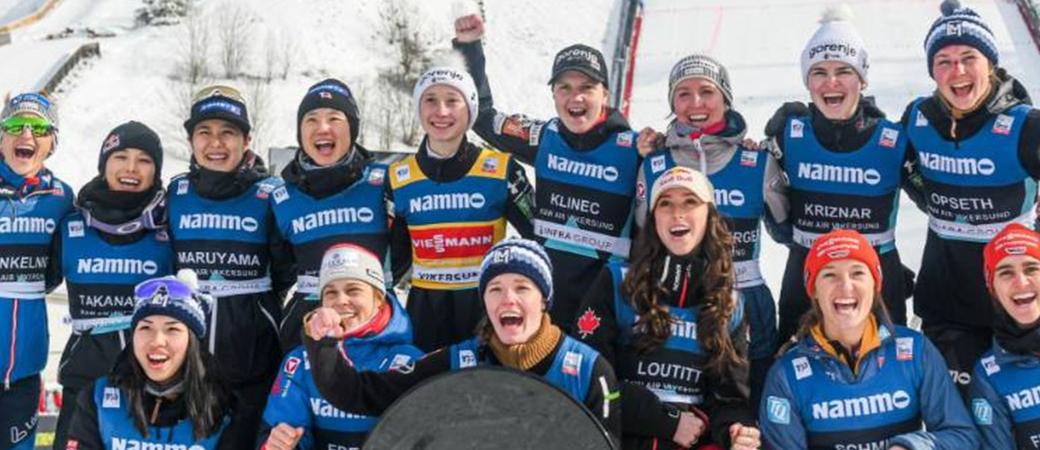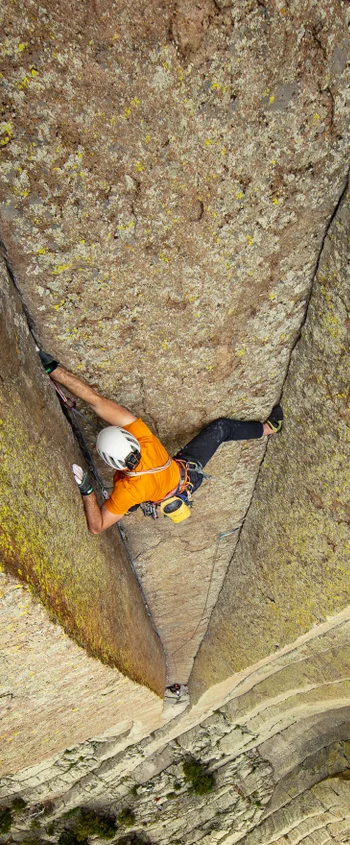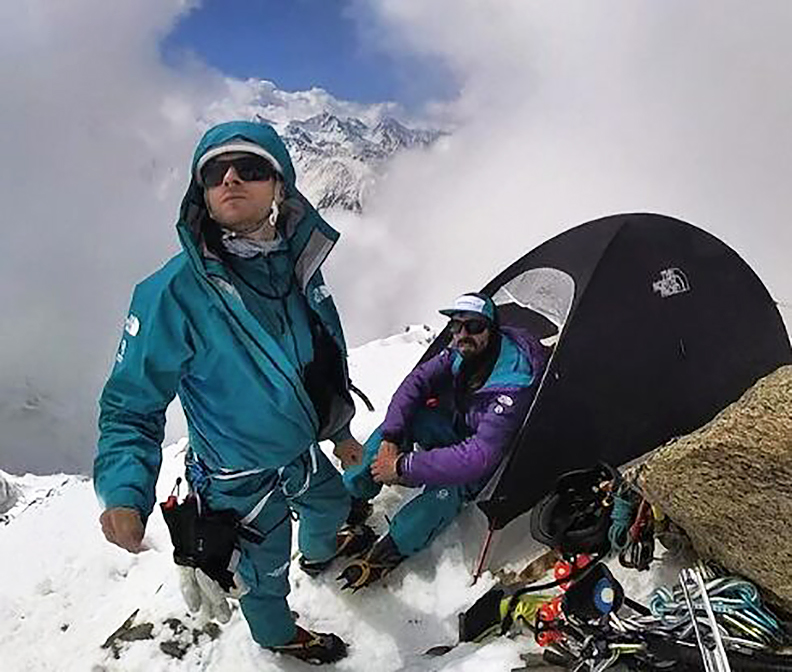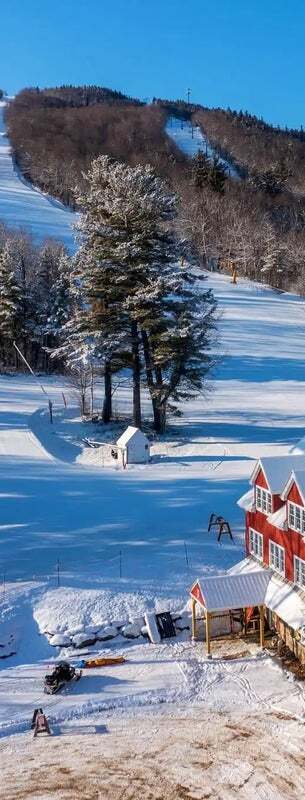From Classroom to Cross-Country: John Kusku’s Inspiring Journey in Para Nordic Skiing
John Kusku’s passion for math and science began early, even before he attended a NASA space camp in elementary school. Today, he channels that passion as a high school math teacher and as a Para cross-country skier.
Kusku, 39, is visually impaired, so when he began training in Nordic skiing two years ago, he couldn’t watch other skiers on the course. He had to find alternative ways to learn cross-country skiing and biathlon, using his scientific mindset to focus on the physics of skiing. This approach is similar to how he played goalball, a sport he excelled in as a member of the U.S. national men’s goalball team for over a decade.
“With my vision being so poor now, cross-country skiing is the first sport I learned completely blind,” Kusku, who lives in the Detroit area, explained. “I’ve always relied on watching others to learn sports, but with skiing, I had to rely entirely on direct instruction.”
Kusku embraced Nordic skiing with an open mind. He concluded his first season of racing at the 2023 U.S. Biathlon National Championships in Casper, Wyoming, and competed at the U.S. Cross Country Ski Nationals in Midway, Utah, during his second season. He plans to race next season at the renowned American Birkebeiner in Wisconsin, the largest cross-country race in North America.
“Seeing the speed of Paralympians like Max Nelson and Jake Adicoff, I know it will take time to reach that level,” Kusku said with a laugh. “I’m aiming for the 2030 team, not 2026.”
Kusku was born with a hereditary degenerative retinal disease, leaving him with less than one degree of vision in each eye. Despite being legally blind from birth, he enjoyed playing soccer and inline hockey with friends in his Detroit suburb. However, his vision deteriorated in middle school, prompting him to find new sports.
He discovered goalball, a sport for visually impaired players aiming to score by throwing a ball into the opponent’s net. Initially, he found it boring but fell in love with it after attending a sports camp hosted by the Michigan Blind Athletic Association, where he now serves as vice president.
“At camp in eighth grade, I fell in love with goalball, especially after getting a bloody nose in my first game,” Kusku recalled. “It got me hooked.”
Kusku joined the U.S. national goalball team in 2009, earning a silver medal at the Rio 2016 Paralympics and finishing fourth in Tokyo 2020. He then turned his attention to Para Nordic skiing, inspired by his childhood experiences in a downhill skiing program for blind skiers and by watching the 2022 Beijing Winter Olympics and Paralympics.
“That was the moment I knew I needed to pursue Nordic skiing,” Kusku said.
In December 2022, at age 37, Kusku tried Nordic skiing for the first time at the Craftsbury Outdoor Center in Vermont, guided by Clare Egan, a two-time Olympian in biathlon.
Kusku’s endurance background, including running the Detroit Free Press Marathon and the Boston Marathon twice, helped him transition to Nordic skiing. He also applied skills from goalball, particularly the ability to follow auditory cues.
“Goalball is sound-dependent, and that skill helps me follow my guide’s commands while skiing,” Kusku said. “Most people couldn’t follow a speaker through a white landscape they can’t see.”
Kusku’s journey in Para Nordic skiing is a testament to his resilience and scientific approach, proving that with determination and the right mindset, anything is possible.
Source:
Learn more: https://www.adventurefilm.academy/
Para Nordic Skiers Hit the Trails in Bend for Early-Season Training Camp
While much of the country enjoyed warm weather earlier this month, nearly a dozen Para Nordic skiers took advantage of the lingering snow near Bend, Oregon. They tested their ski equipment, navigated the trails at Mount Bachelor, honed their fundamentals, and bonded as a group.
Nine Paralympians, Paralympic hopefuls, and newcomers to cross-country skiing, along with a personal guide, gathered for a training camp hosted by U.S. Paralympics Nordic Skiing in mid-May. For many, this was likely their last chance to train on snow this summer.
“It’s a good time for everybody to connect as a team, and it’s early season. People aren’t really thinking about racing yet. They’re just thinking about kicking it off, so it’s a little lighter,” said BethAnn Chamberlain, a development coach with U.S. Paralympics Nordic Skiing.
During a typical year, cross-country skiers take off April after wrapping up their seasons in March. They usually start their offseason training programs on May 1, and it has become an annual tradition for U.S. Paralympics Nordic Skiing to host a training camp at Mount Bachelor in May.
The small group of sit skiers, standing skiers, and visually impaired skiers started this year’s camp on May 12. It included athletes of all levels, from those new to the sport to Paralympians Dani Aravich, Erin Martin, Max Nelson, and Jake Adicoff.
Adicoff, a four-time Paralympic medalist, was the most decorated of the skiers who trained just outside Bend for up to 10 days.
“We ski in the morning because the snow softens up and it wouldn’t be worth going in the afternoon,” Chamberlain said. “It’s really awesome, especially for our sit skiers and our more experienced athletes that just need more volume, more on-snow time.”
Ty Wiberg and Nicole Zaino, two promising sit skiers who train together in Bozeman, Montana, joined Martin and three newcomers to sit skiing for almost a week of training at Mount Bachelor. Several members of the Canadian Para Nordic skiing national team also trained with the Americans.
Chamberlain said the camp gave experienced sit skiers like Martin the chance to try new things with their sit skis and refine their skills for dryland training this summer. The camp was also productive for newcomers, who worked on fundamentals and learned to maneuver around curves and ski up and down hills.
“It’s always super fun working with new athletes. We want to give them a good experience and a good taste of what Nordic skiing is all about,” Chamberlain said.
Aravich, a standing skier, and visually impaired skiers Adicoff and Nelson, all members of the U.S. Paralympics Nordic skiing national team, spent extra days at the camp to maximize their on-snow time. They’ll spend the rest of the summer roller skiing to stay in shape for the upcoming season.
“It’s a great time of year to bring a diverse group together because it’s early season training,” Chamberlain said. “It’s basics. It’s fundamentals. It’s bringing it back.
Source:
Learn more: https://www.adventurefilm.academy/
Number of Skiers in Colorado Mountains Declines This Season This season, the number of skiers in the Colorado mountains declined.
According to Colorado Ski Country USA, visitation to Colorado’s ski resorts decreased this past winter. The state’s ski areas recorded approximately 14 million skier visits for the season, representing a 5 percent drop from the previous year. Despite the decline, this is still a significant number of skiers, as last year set a record, the trade group, which represents 21 Colorado resorts, noted in a statement.
A ‘skier visit’ is defined as one person participating in skiing or snowboarding for any part of one day at a mountain resort.
The winter sports season had a slow start this year due to poor snow conditions across the U.S., including Colorado. However, the state’s mountain towns regained some lost ground with a series of big storms in the spring.
“This season was a rollercoaster ride, starting off on the warm and dry side and ending with a notably snowy extended season that stretched deep into spring,” said Melanie Mills, president and CEO of Colorado Ski Country USA. “Our hats are off to the resorts who managed everything the season held.”
Despite the late-season surge, hotels and vacation rentals experienced a decline in revenue this winter. According to data provider DestiMetrics, lodging revenues in Colorado were down from last year due to a combination of lower occupancy and lower room rates.
Source
https://www.cpr.org/2024/06/07/number-of-skiers-in-colorado-down-this-seeason/
Learn more: https://www.adventurefilm.academy/




